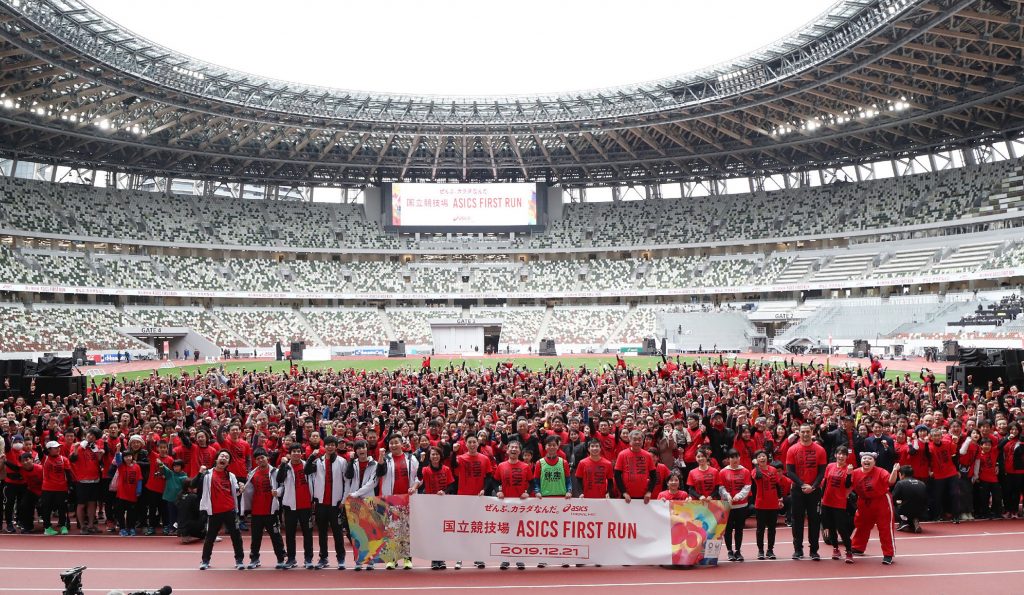
- ARAB NEWS
- 24 Apr 2024

Jumana Khamis Dubai
Plans are afoot to make the 2020 Tokyo Olympic Games a paragon of sustainable practices, with recyling systems in place for converting electronic waste into Olympic medals and shampoo bottles into podiums.
The Tokyo Organising Committee of the Olympics and Paralympics Games has announced it will embrace the concept “Be better, together - For the planet and the people” to use the event to showcase solutions to global sustainability challenges.
“We aim to contribute to the realisation of the UN’s Sustainable Development Goals through the delivery of the Games. We are also committed to ensuring the Tokyo 2020 Games’ concepts and legacies are passed on to future Olympic and Paralympic Games,” said the committee.
Eight months ahead of the Games’ return to Tokyo, the Olympic Stadium, which was built for the occasion, was inaugurated by the Japanese Prime Minister Shinzo Abe, Tokyo Governor Yuriko Koike, and architect Kengo Kuma, marking its completion on Dec. 16.
The stadium’s eco-friendly design was created to have the “lowest possible environmental load” with the goal of achieving the highest ranking in CASBEE, a Japanese building environmental performance rating index.
Additionally, a state-of-the-art energy management system was installed to maximize the energy efficiency at the venue.
“The environmental load will be reduced by using natural energy. Thin-film photovoltaic cells were integrated on the glass part of the edge of the roof. Rainwater and well water will be collected and used for the irrigation of the grass, plants and trees of the stadium,” read a statement issued by the organising committee to the media on the stadium’s facilities.
Commenting on the venue’s inaugural day, Toshiro Muto, Tokyo 2020 CEO said: “We are so looking forward to seeing athletes from all over the world marching into the new stadium… we believe it will become an irreplaceable legacy – a place that will allow people to spend healthy and fulfilling days enjoying sport for another fifty years or even longer. With this in mind, we will continue our preparations for hosting the best Games ever.”
Various sustainability activities were also commissioned under five main themes: ‘Climate change,’ ‘Resource management, natural environment and biodiversity,’ ‘Human rights, labour and fair business practices,’ and ‘Involvement, cooperation and communications.’
Scheduled to begin on July 24, 2020, the Olympics is expected to gather over 11,000 athletes from 206 countries, who will compete for one or more of the 5,000 medals made for the event.
However, unlike every edition of the event where the medals are made from a combination of gold, silver and bronze copper, the Tokyo games will introduce environment-friendly awards under the ‘Tokyo 2020 Medal Project.’
The first, second, and third place medals will be manufactured from precious metals retrieved from discarded consumer electronic devices such as mobile phones, which have been donated by the public.
Similarly, the committee is also adopting an initiative called ‘Towards Zero Carbon’ under the theme Climate Change, which plans to obtain 100 percent of the electricity needed for the event from renewable sources. This will power all 42 competition venues, the press and broadcasting facilities and the Olympic and Paralympic Village.
Another sustainability program launched in 2017 ‘Operation BATON’ (Building Athletes’ Village with Timber of the Nation) is constructing buildings in one of the event’s main facilities and the venue for team-welcome ceremonies known as the Village Plaza, using timber derived from sustainable sources and produced by participating municipalities. The buildings will be dismantled after the Tokyo Games and the timber returned to the municipalities for re-use.
Tokyo 2020 is also using recycled marine and household plastic waste to create podiums that will be used during the event’s various ceremonies under a collaboration with Proctor & Gamble. The committee is also aiming to re-use or recycle 99 percent of all procured goods and items.